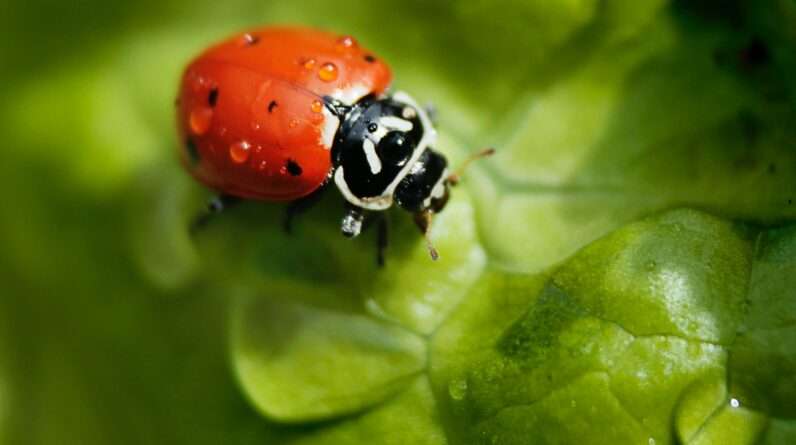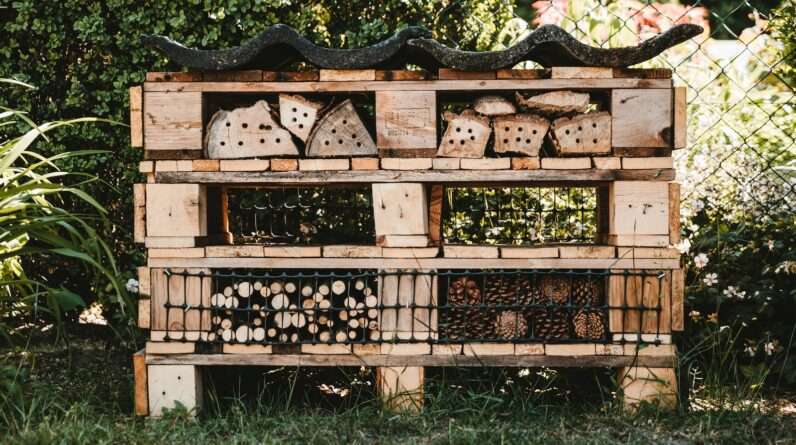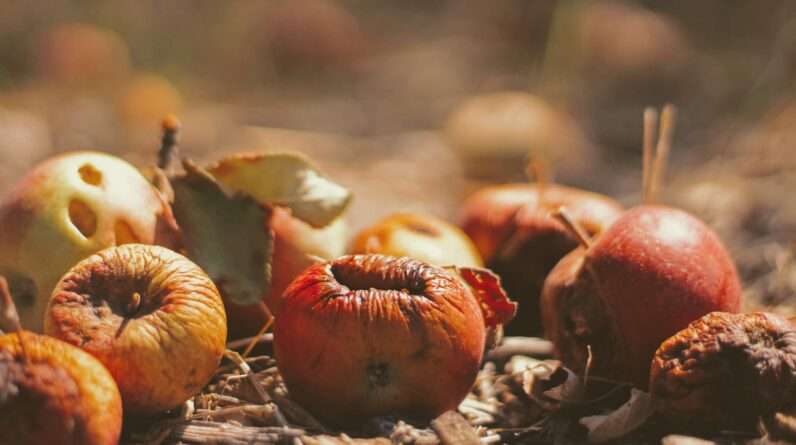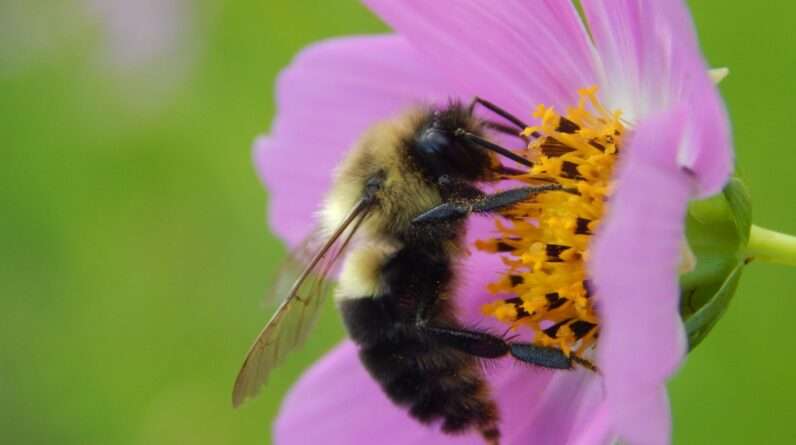
Imagine stepping into your garden and being greeted by a thriving ecosystem, buzzing with life and teeming with natural pest control. Say goodbye to harmful pesticides and hello to a healthier, more sustainable approach.
In this article, we will explore the wonders of pesticide-free pest control and how it nurtures a robust garden ecosystem. Discover the impact of pesticides on the environment, learn natural methods for prevention and control, and unlock the secrets of attracting beneficial insects to your garden.
Let’s create a balanced and resilient garden together!
Key Takeaways
- Prioritize creating a healthy garden ecosystem for long-term success of plants and overall garden health.
- Incorporating organic matter into soil improves fertility and structure.
- Planting a variety of flowers, herbs, and vegetables attracts beneficial insects for pest control.
- Minimizing harm to the environment is essential.
The Importance of a Healthy Garden Ecosystem
You should prioritize creating a healthy garden ecosystem to ensure the long-term success of your plants and the overall health of your garden. A healthy garden ecosystem is essential because it promotes a balanced and sustainable environment for your plants to thrive.
When your garden ecosystem is in good health, it helps to naturally control pests, reduces the need for chemical pesticides, and enhances the biodiversity of your garden. By incorporating organic matter, such as compost, into your soil, you can improve its fertility and structure, providing a better foundation for plant growth.
Additionally, planting a variety of flowers, herbs, and vegetables can attract beneficial insects, like ladybugs and bees, which help to control harmful pests.
Understanding the importance of a healthy garden ecosystem sets the stage for understanding the impact of pesticides on the environment.
Understanding the Impact of Pesticides on the Environment
It is crucial to delve into the potential effects of pesticides on the environment and comprehend their overall impact.
Pesticides are commonly used to control pests and enhance crop yields, but their use can have detrimental effects on the environment.
Pesticides can contaminate soil, water, and air, affecting not only the targeted pests but also non-target organisms, including beneficial insects, birds, and mammals.
These chemicals can disrupt the balance of ecosystems and harm biodiversity, leading to long-term consequences for the environment.
Understanding the impact of pesticides is essential for developing effective, sustainable pest control strategies that minimize harm to the environment.
Natural Methods for Pest Prevention and Control
Using companion planting and regular monitoring are effective ways to prevent and control pests in your garden without the use of pesticides. By strategically planting certain flowers, herbs, and vegetables together, you can create a natural barrier that repels pests and attracts beneficial insects.
Regularly monitoring your garden allows you to identify pest problems early on and take appropriate action. Here are some natural methods you can incorporate into your gardening routine:
- Companion planting: Planting marigolds alongside tomatoes can deter aphids and nematodes.
- Attracting beneficial insects: Growing plants like dill and fennel attracts ladybugs and lacewings, which feed on aphids and other pests.
- Crop rotation: Rotating crops each season helps prevent the buildup of pests and diseases in the soil.
- Physical barriers: Using row covers and netting can protect your plants from insects and birds.
Attracting Beneficial Insects to Your Garden
By planting flowers and herbs that attract beneficial insects, you can naturally control pests in your garden. Beneficial insects such as ladybugs, lacewings, and hoverflies are natural predators of common garden pests like aphids, mites, and caterpillars. These insects feed on pests, keeping their populations in check and reducing the need for chemical pesticides.
To attract beneficial insects, consider planting nectar-rich flowers like marigolds, zinnias, and cosmos. These flowers provide a food source for adult beneficial insects while also attracting them to your garden. Additionally, planting herbs like dill, fennel, and cilantro can attract beneficial insects that prey on garden pests.
Providing a diverse range of flowers and herbs throughout the growing season will ensure a steady population of beneficial insects in your garden, helping to maintain a healthy balance and reduce the need for chemical interventions.
Creating a Balanced and Resilient Garden Ecosystem
To create a balanced and resilient garden ecosystem, you should focus on incorporating a variety of native plants that support beneficial insects and provide habitat for other wildlife. Native plants are well-adapted to the local environment, making them more resistant to pests and diseases.
They also provide food and shelter for a wide range of wildlife, including birds, butterflies, and bees. When selecting plants for your garden, consider their bloom times to ensure a continuous source of nectar and pollen throughout the year.
Additionally, avoid using chemical pesticides as they can harm beneficial insects and disrupt the natural balance of your garden. Instead, practice integrated pest management by encouraging natural predators, such as ladybugs and lacewings, and using physical barriers or organic solutions when necessary.
Frequently Asked Questions
Can Pesticides Be Used in a Healthy Garden Ecosystem?
You can use pesticides in a healthy garden ecosystem, but it may disrupt the natural balance and harm beneficial organisms. Consider alternative methods like companion planting, crop rotation, and biological controls to protect your garden without pesticides.
How Can I Identify Beneficial Insects in My Garden?
To identify beneficial insects in your garden, observe their behavior and appearance. Look for insects that prey on pests, such as ladybugs and lacewings. Also, attract beneficial insects by planting flowers and providing shelter.
Are There Any Plants That Naturally Repel Pests?
Yes, there are plants that naturally repel pests. They release compounds that deter insects. Examples include marigolds, lavender, and mint. Planting these alongside your other crops can help protect your garden from unwanted pests.
What Are Some Alternative Methods for Pest Control Without Using Pesticides?
Some alternative methods for pest control without using pesticides include companion planting, introducing beneficial insects, using physical barriers, practicing proper sanitation, and implementing organic pest control products.
How Can I Encourage Biodiversity in My Garden to Prevent Pest Problems?
To encourage biodiversity in your garden and prevent pest problems, create a welcoming habitat for beneficial insects by planting diverse native plants and providing water sources. This will attract natural predators that keep pests in check.







